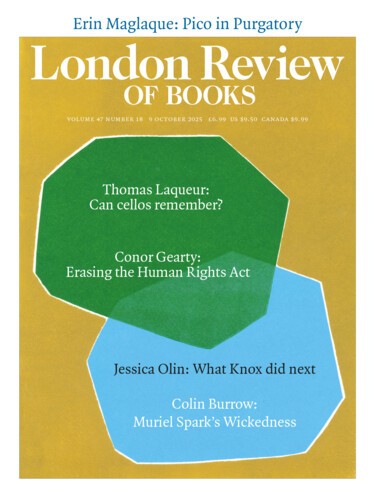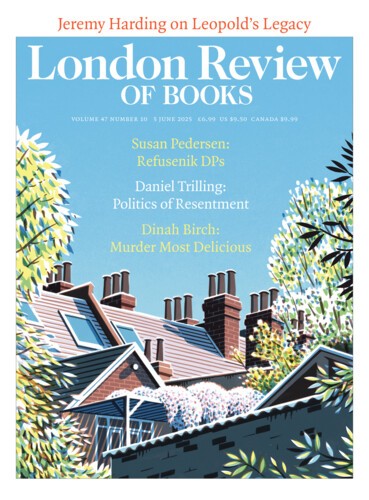Lee Gillette
Lee Gillette lives in Brussels.
Paths to Restitution
24 May 2025
How to Dress for the Desert
17 June 2021
Fifteen years ago I woke in my flat at the northern end of Manhattan, unemployed and hungover. I munched on a stale bagel while gazing out the kitchen window at the Palisades. A friend who’d recently moved out of the city called on my landline, the only line I had: ‘I got through – Lee! The towers are gone!’ I turned the radio on and heard the chaos, then ran downstairs to the bar I’d left a few hours earlier. On the way I watched a white man accost an Arab cab driver, yelling: ‘I’m gonna call the cops on you!’ The bar’s television showed the towers fall countless times over the next three hours. I took the subway as far south as it went, then walked as close to Ground Zero as I could, close enough anyway to leave footprints in the dust. This morning I woke in the Brussels commune of Saint-Gilles, not much more employed and hungover from last night’s weekly outdoor market and apéro in front of one of the city’s nineteen town halls. I had two text messages: ‘We just heard the news, are you OK?’ I knew instantly what had happened. Those two messages asking if I was all right were enough to tell me there’d been an attack in Brussels and people had died while I slept.
Diary: In Brussels
Lee Gillette, 7 January 2016
It seems long ago. The city on lockdown, the raids, the cat tweets. Vestiges remain, some of them new. A green army lorry was parked at the weekly market across the street. It hadn’t been there the Monday before, and the Monday before that was the lockdown and the market was cancelled. The Saint-Gilles town hall overshadows the market. One of the mayor’s eight deputies told me...
Read anywhere with the London Review of Books app, available now from the App Store for Apple devices, Google Play for Android devices and Amazon for your Kindle Fire.
Sign up to our newsletter
For highlights from the latest issue, our archive and the blog, as well as news, events and exclusive promotions.





